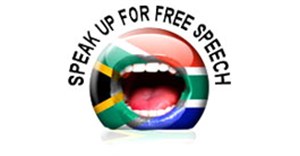Trending
Zimbabwe journalists want better pay
Harare – Mugabe's government introduced tough media laws five years ago imposing state permits on reporters and barring foreign journalists from working permanently in the country.
The southern African country's largest privately owned newspaper, the Daily News, its sister Sunday paper, and two weeklies were forced to close after failing to comply with the stringent provisions of the law, while dozens of reporters have been arrested on charges of violating the regulations.
Critics say the laws have been used to reduce the size of the private media, and to control the small independent media.
Scrap laws, pay decent wages, government told
On Thursday, the Zimbabwe Union of Journalists (ZUJ) called on the government to scrap the restrictive laws and on employers in both the private and state media to pay journalists decent wages as the country's economy continues to deteriorate.
"We are saying again, as we have been saying over and over again over the last few years, that we only need laws that advance the interests of press freedom," said ZUJ president Matthew Takaona ahead of a seminar on Thursday night to mark International Press Freedom Day.
"We are saying that the current political, social and economic environment does not promote that freedom."
Takaona said besides the hostile working environment, many Zimbabwean journalists both in the private and government media houses were poorly paid, earning far below the recommended minimum wage of Z$1.5 million (about US$60 at black market rates).
"Some of our journalists are earning wages lower than those of sugar cane cutters, and they are scrounging around to survive the economic crisis," he said.
Media companies say they cannot pay better wages because high costs have left the industry almost unprofitable.
Previate press accused
Mugabe's government says the private press has spearheaded a Western propaganda campaign against it over its seizure of white-owned farms for redistribution to landless blacks.
The Zimbabwe government has lately been citing a US State Department human rights report indicating that Washington was working with opposition and civic groups, journalists and the clergy in a drive against Mugabe.
Last month, the government launched a crackdown on the main opposition Movement for Democratic Change (MDC), accusing it of trying to overthrow it through a "terrorist campaign" of petrol bombings. The opposition denies the charge. But analysts expect the government to step up pressure on all its critics, including journalists, ahead of general elections next year.
Article courtesy of New Zimbabwe












